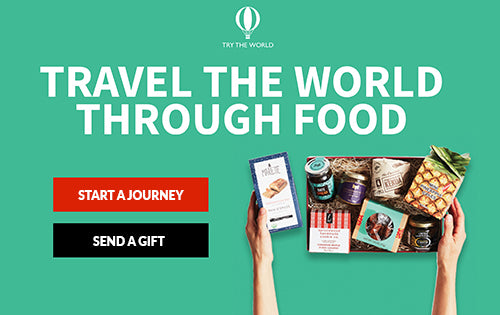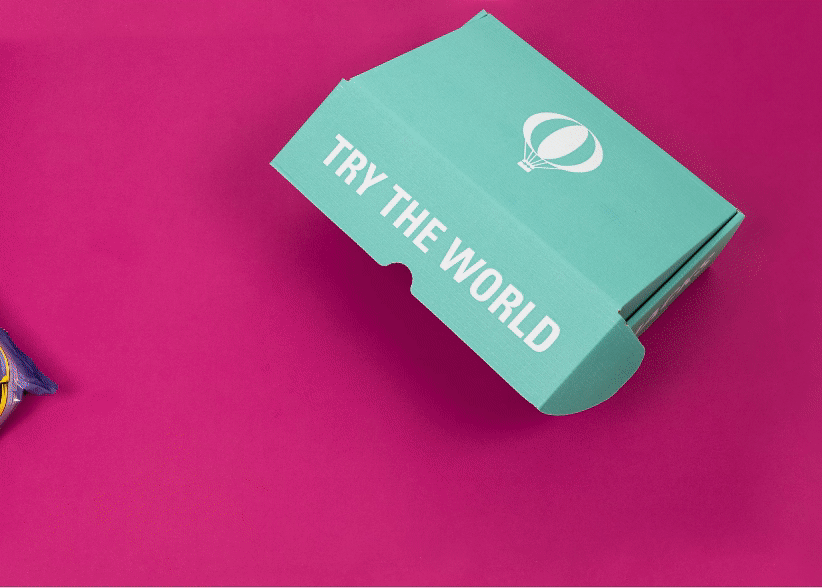Here at Try The World, we take pride in working with small, artisanal companies that respect and protect the environment. And no matter where our next boxes are from, we’re constantly on the hunt for not only the most authentic foods, but also the most sustainably produced. That means working with certified organic farms, artisans who follow traditional methods of production, and companies that maintain biodiversity in the area and harvest sustainably. Here’s the scoop on 8 of our most sustainable brands from every corner of the world.
To promote sustainability and healthful living, this small company located in Northern Portugal produces organic herbs and seasonings using local ingredients. Hands on Earth also aims to educate their consumers about the benefits of organic and sustainable farming.
Sarapee Yuadyong with one of the farmers she works with | © Laurent Ross, Chiwadi
2. Chiwadi: Thailand
Instead of retiring after almost 30 years in the workforce, Chiwadi’s founder decided to follow her calling and help struggling locals in Thailand. She invented a new technique to harvest coconut flower nectar (a syrup very similar to honey) and created a network of farmers who grow, harvest, and produce various coconut products sustainably.
3. Le Saunier de Camargue: France
For hundreds of years, fleur de sel (or finishing salt), has been harvested from the naturally pink salt flats of Camargue on the French Mediterranean coast. These salt flats span over 145,000 hectares and are home to an incredible number of plant and animal species that thrive within this unique ecosystem. Saunier de Camargue keeps the finishing salt tradition alive by maintaining the biodiversity in this area: sauniers (harvesters) rake sea water every day of the year, then collect the sun-dried crystals—all in the same way as they did centuries ago.
4. Biokia: Finland
In Finland’s northern wilderness, Biokia harvests a range of berries—such as bilberries, lingonberries, and blueberries—in forests that are still untouched by human development. These berries are not only packed with healthful fiber, vitamins, and antioxidants, but also harvested by hand so as to preserve the forest and berry plants.
5. Dip & Scoop: Morocco
A cooperative of Berber women in Morocco, Dip & Scoop centers around the sustainable production of argan oil, a Moroccan specialty that can be used for both cosmetic and culinary purposes. Highly prized for its virtuous qualities, the oil is harvested from the argan tree (which is now a part of UNESCO’s biosphere reserve) by hand-picking the tree’s fruit, allowing them to dry in the sun, and cracking them open to access the kernel inside. The kernel is then toasted and pressed to release the oil. Dip & Scoop ensures the preservation of these precious trees by following sustainable harvesting methods. Plus, the cooperative helps women find employment in the region!
6. Mogi Caffè: Italy
The brother-sister duo behind Mogi Caffè partners with a variety of non profit organizations to make their premium coffee ground and beans. Slow Foods International, for example, an organization that aims to protect local food culture, was the inspiration behind their Ethic coffee label. Other social projects offered job opportunities to detainees and people who had fallen under social difficulties. In addition to humanitarian causes, Mogi also grows coffee trees that are planted among other plants, so as to preserve the biodiversity of the area. Even their packaging is sustainable: by separating the outer plastic and inner paper, the packaging is 100% recyclable.
Situated in the Nazareth, a land home to both rich history and prolonged violence, is Sindyanna: a fair-trade organization dedicated to Israeli-Arab solidarity and the empowerment of Arab women in Israel. But not only that—Sindyanna has also improved the farming industry in Israel by transforming dilapidated farmland into flourishing organic farms and selecting crops that are better adapted to growing in Israel’s arid climate. Today, other farms in the region follow Sindyanna’s example.
8. Jasberry: Thailand
Not only is this purple rice full of healthful antioxidants and fiber (and free of GMOs and 100% organic), but the company itself aims to improve the conditions of impoverished rice farmers in Thailand. The company is so dedicated to sustainable production that Jasberry does not obligate the farmers they work with to give their harvest back to Jasberry—as long as it’s grown sustainably, farmers can have seeds for free and sell their harvest to whomever they choose.






